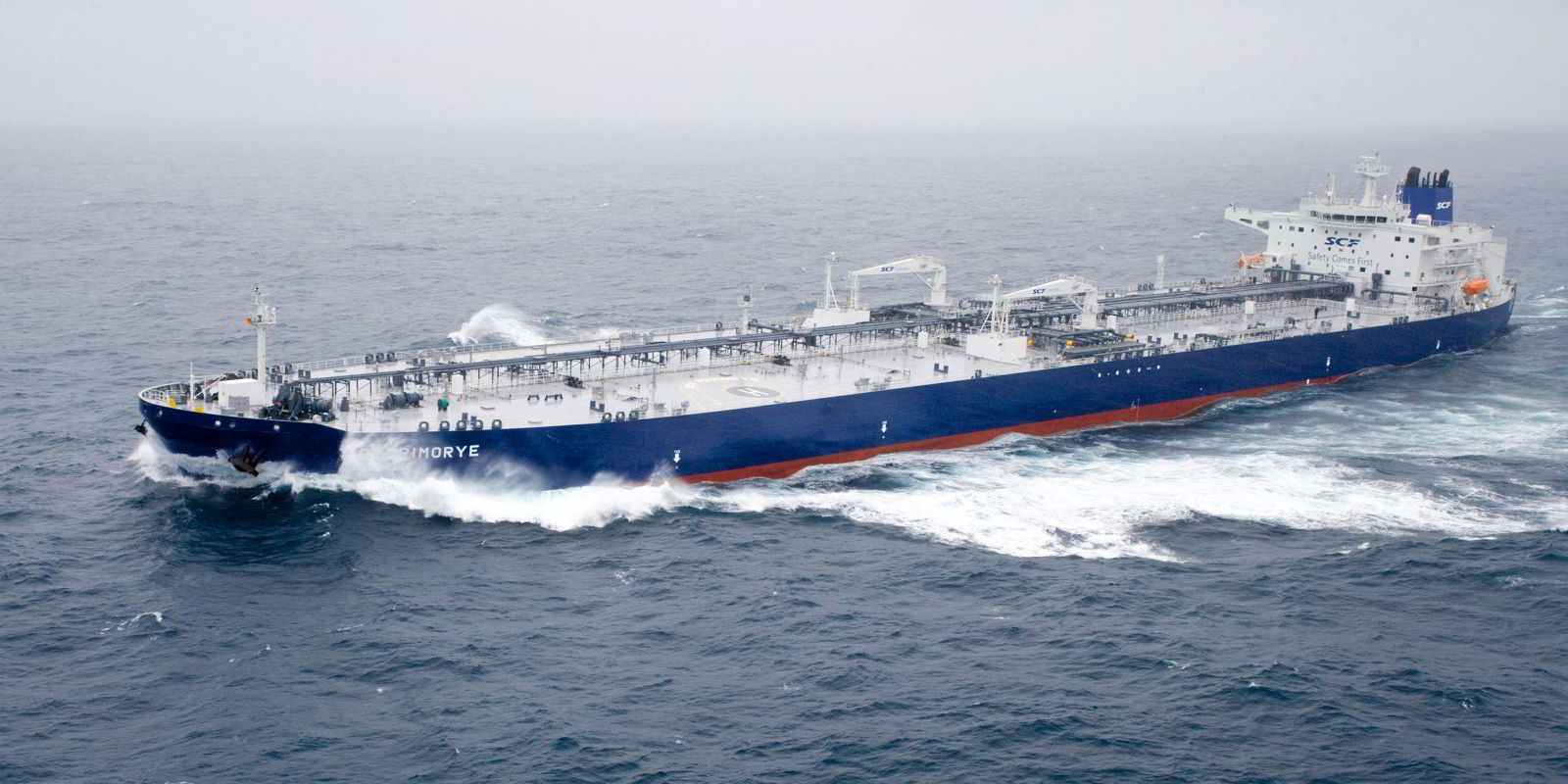Western pressure to isolate Russia is pushing the country’s tankers — including those owned by major shipowner Sovcomflot (SCF Group) — to ramp up measures to shield their activities from vessel trackers.
And the growing evidence of “dark activities” by Russian-flagged tankers and those controlled by Russian companies threatens to make the vessels more direct targets of US officials.
Windward, a London-listed technology company that uses artificial intelligence to analyse shipping activity, has noted a significant increase in Russian vessels engaging in dark activity when the AIS tracking data is either not received or deliberately turned off.
The firm’s data analysis excludes situations where ships may have been impacted by an AIS outage that does not indicate dark activity.
According to data supplied to TradeWinds, there were 50 incidences of dark activity by Russian-flagged crude, chemical and product tankers in the week starting 19 March, and 52 incidents in the week before that.
Prior to that in 2022, there had been an average of just 16 incidences of dark activity per week.
Windward highlighted growing dark activity in the product and chemical tanker fleets.
In addition, the Israel-headquartered firm told TradeWinds that in the week to Monday 28 March, there were 13 dark activities by Sovcomflot vessels, contributing to what it described as a 138% spike in incidents since the 24 February invasion of Ukraine, compared with the beginning of this year.
Sovcomflot spokesperson Nikita Sekretarev said the claims do not correspond to the facts.
“The company asserts that there were no occurrences when SCF vessels had deliberately turned off their AIS transmitters or were instructed to act so in direct breach of international rules and regulations,” Sekretarev told TradeWinds.
The company controls a fleet of 134 tankers and LNG carriers flying the flags of Russia, Liberia, Singapore and Cyprus, according to Clarksons’ shipping database.
The shipping major has been hit with sanctions from the UK and European Union, in addition to restrictions by Washington on its financing activities.
The US Department of the Treasury’s Office of Foreign Assets Control (Ofac) has identified turning off or masking AIS among a variety of “deceptive shipping practices” that could lead a company, individual or vessel to land on its sanctions blacklist.
As Western powers ratchet up sanctions on Moscow after its invasion of Ukraine, companies are also facing broader pressure to pull back from business activity with Russia, because of ESG — environmental, social and corporate governance — risk in addition to the growing legal restrictions.
Major exporter
But Russia remains a major exporter of hydrocarbons, and sellers of its energy commodities have to react to the growing minefield.
“If they want to keep on sending that oil and shipping that oil somewhere, they can’t be seen,” Windward chief executive Ami Daniel said. “So I think that’s the primary reason that we’re starting to see deceptive shipping practices. And we think it’s going to actually increase going forward.”

Jonathan Epstein, a partner at US law firm Holland & Knight who advises on sanctions, recommended that, given the activity recently detected by Windward, companies looking to charter Russian-affiliated vessels should not only vet ownership but also AIS information since 24 February.
“And I would expect that in the current environment, Ofac will move expeditiously to sanction tankers believed to be engaged in suspicious activity,” he told TradeWinds.
TradeWinds reporters across the globe are covering the shipping implications on the Russia-Ukraine crisis.
“Even if Ofac does not designate such vessels as SDNs [specially designated nationals], the US government could do a ‘name and shame’ in a public announcement as was done in the past, perhaps in conjunction with notifying insurers and flag of registry of the US government concern.”
Sanctions experts are now watching to see whether Russian shipping activity will begin to follow the path of the Venezuela and Iran trades as sanctions pressure mounts.
Ofac has pointed to other types of deceptive practices, including ship-to-ship transfers, falsifying documents and voyage irregularities, that are used as tools to avoid sanctions. Market experts also point to a more recent sanctions-busting tool: “spoofing” location data by displaying false information rather than just turning off AIS.
Windward’s latest data shows, in the month after Moscow’s war on Ukraine began, vessel meetings that may indicate ship-to-ship transfer activity involving Russian tankers has continued at relatively normal levels, showing some companies are still willing to deal with Russian ships.
“I think as this goes on, and the rhetoric gets a bit more aggressive ... we’ll see more and more deceptive shipping practices,” Daniel said.
This story has been amended since publication to include comment by Sovcomflot.





